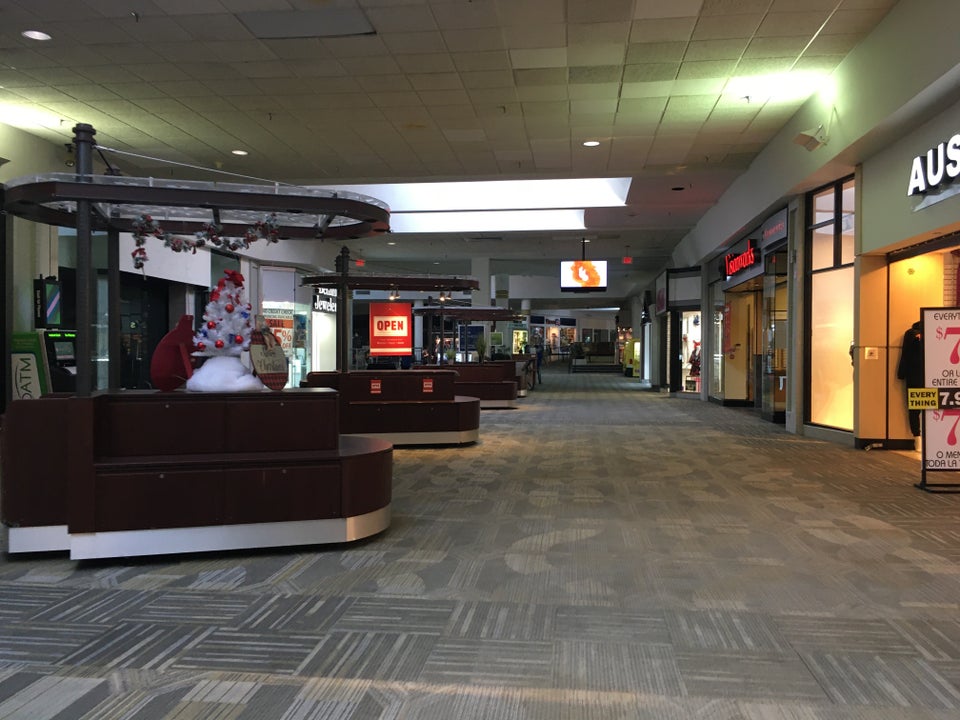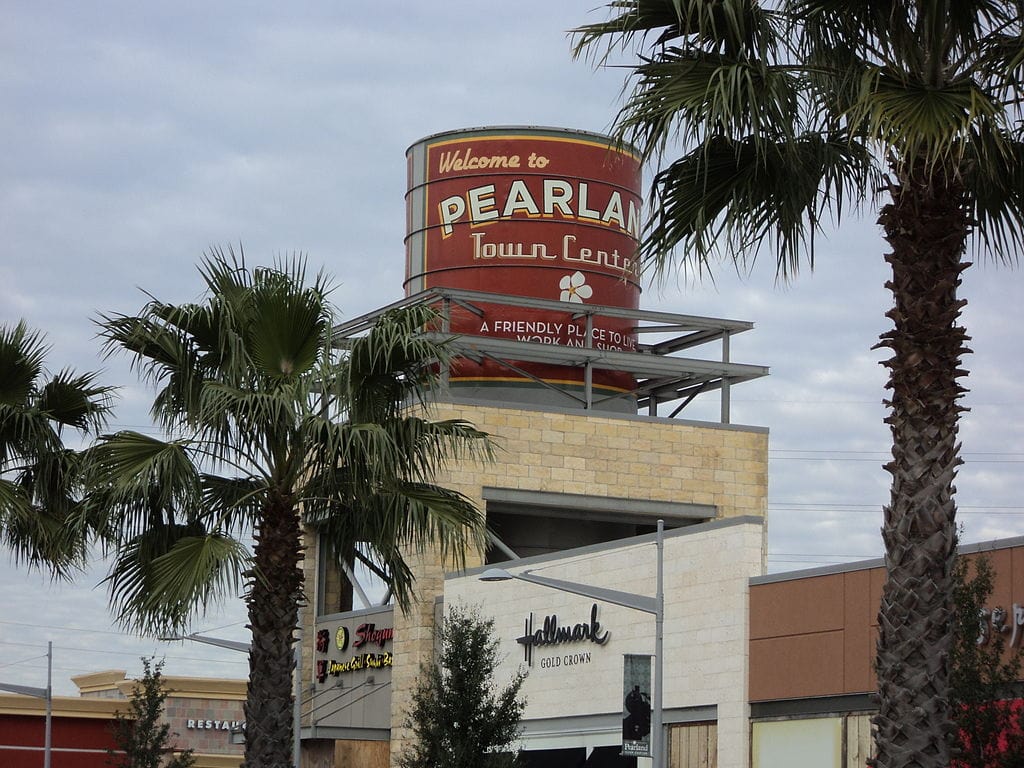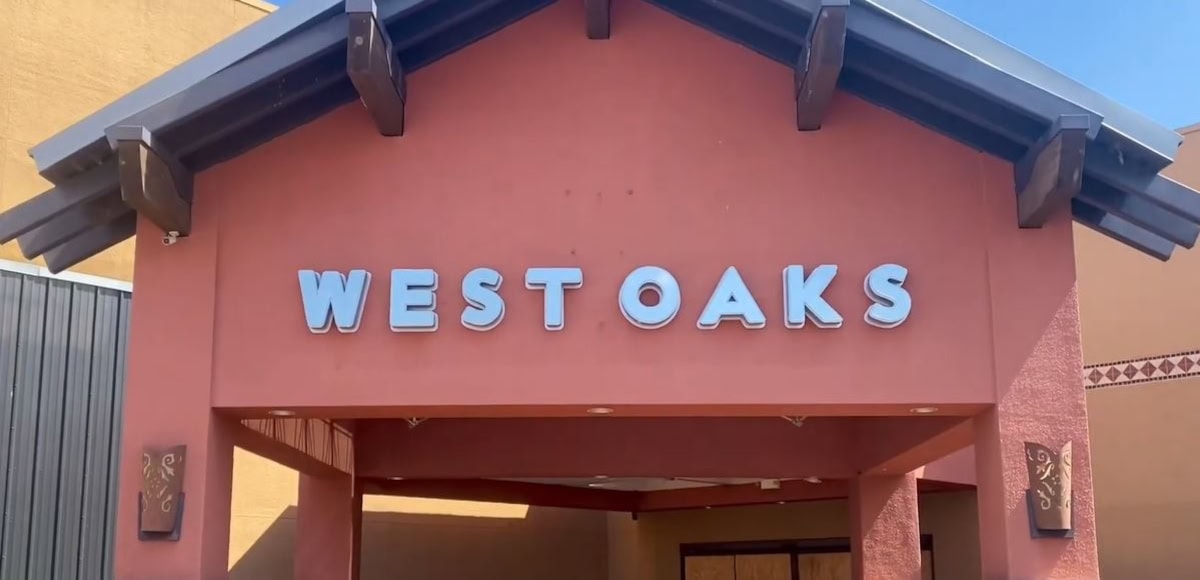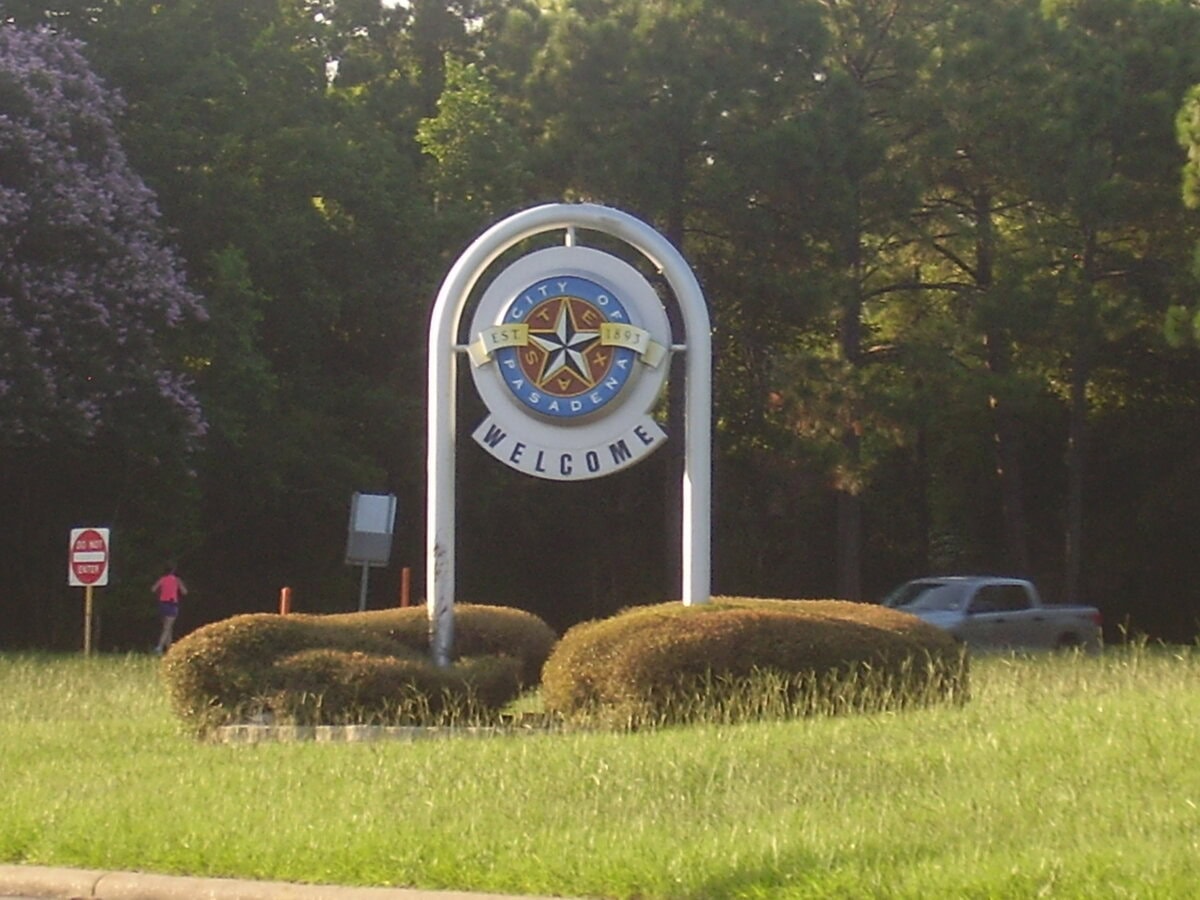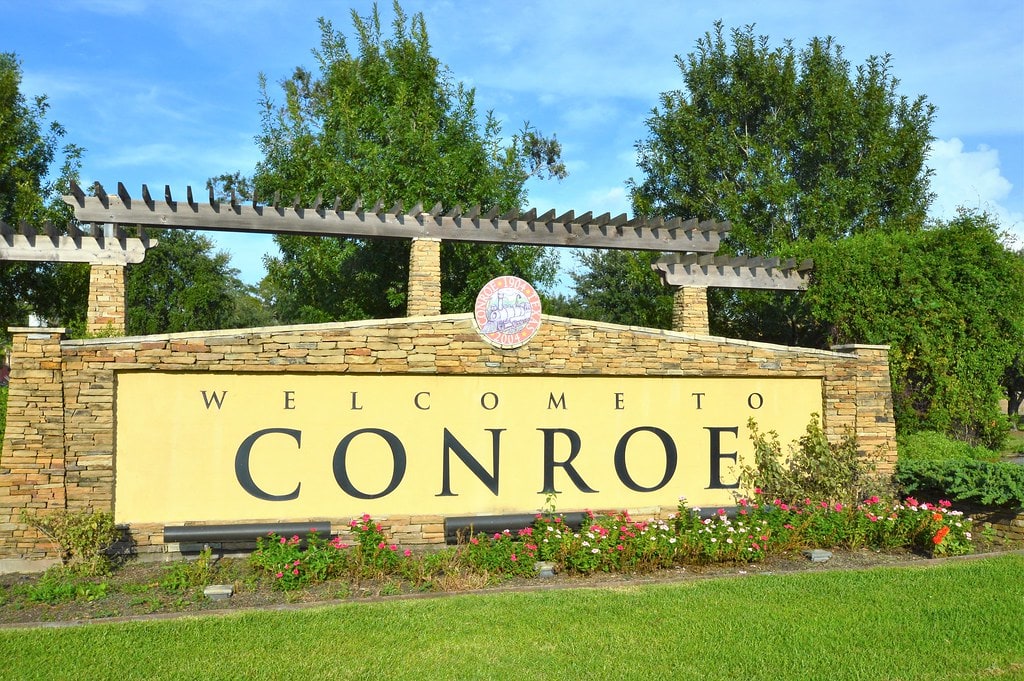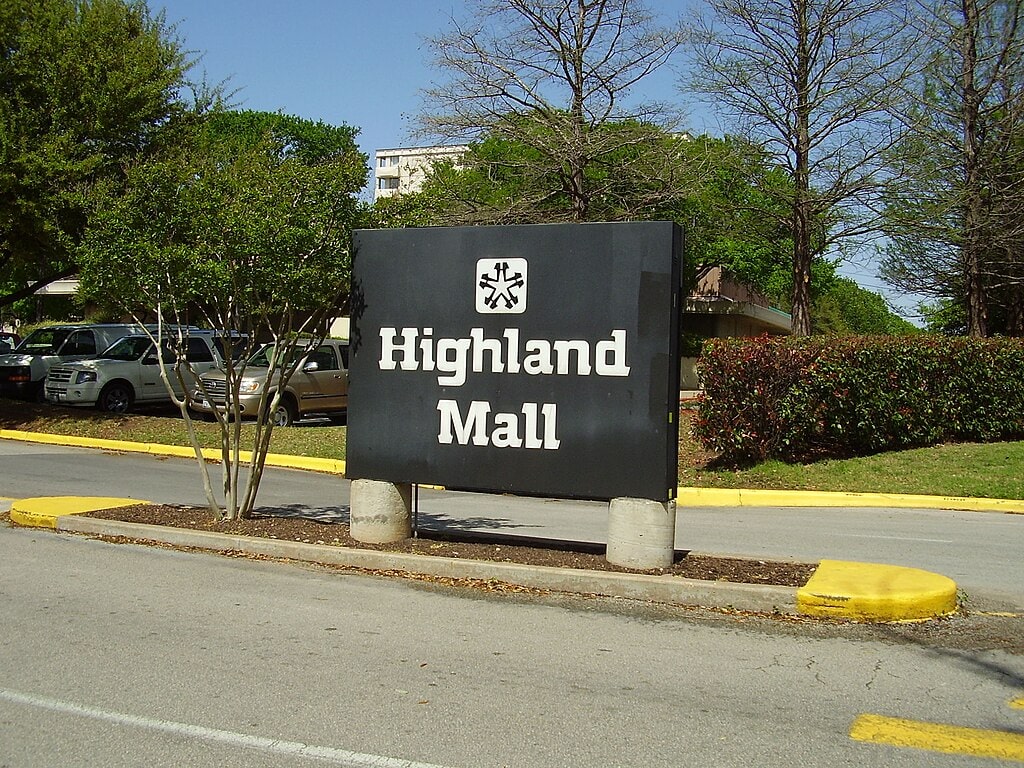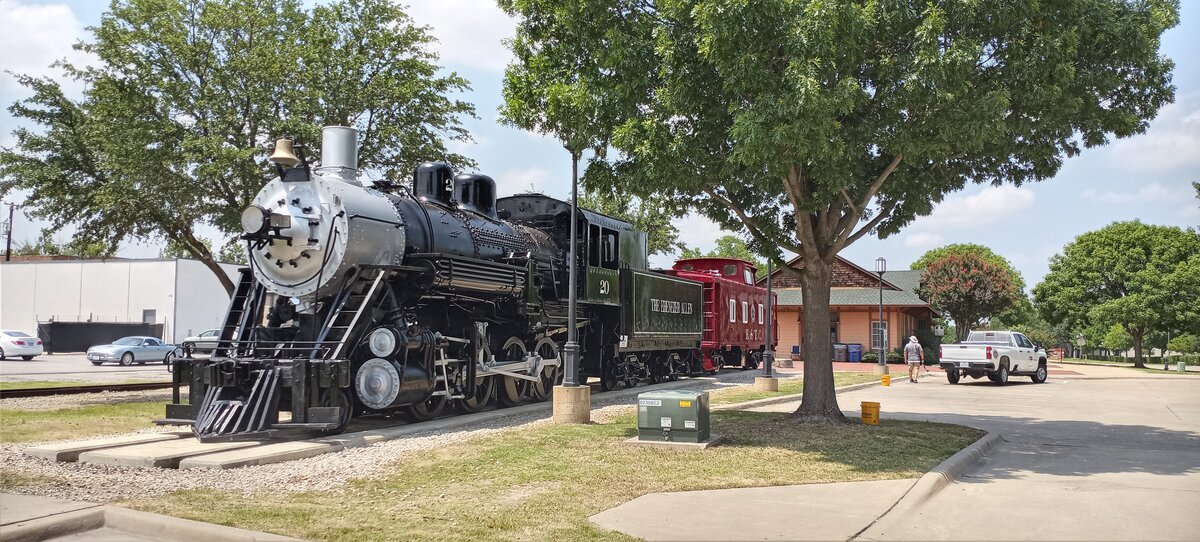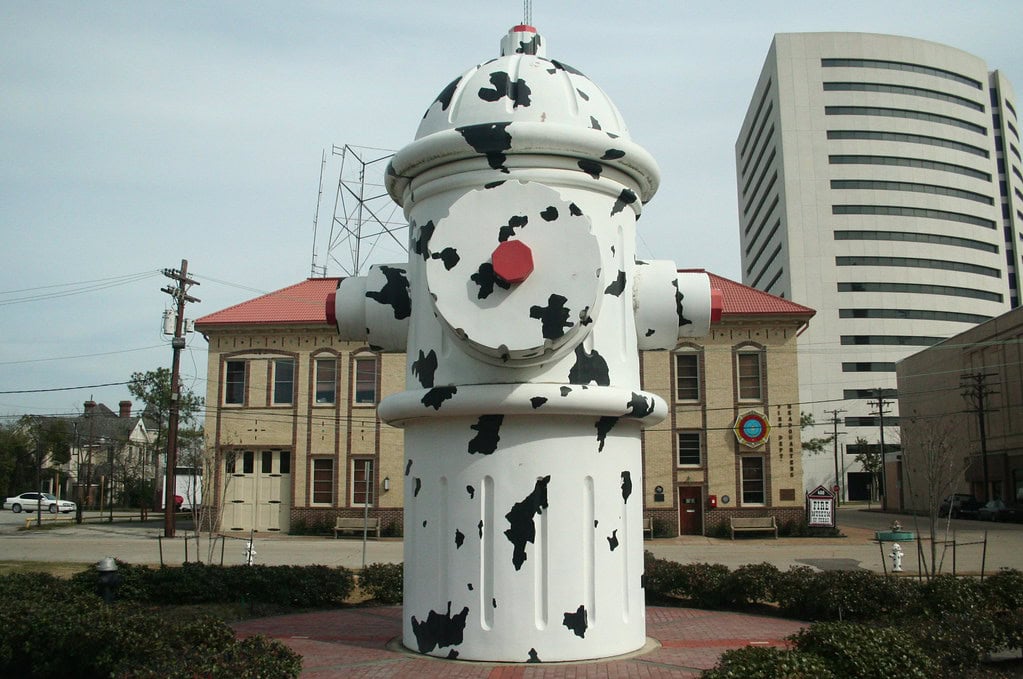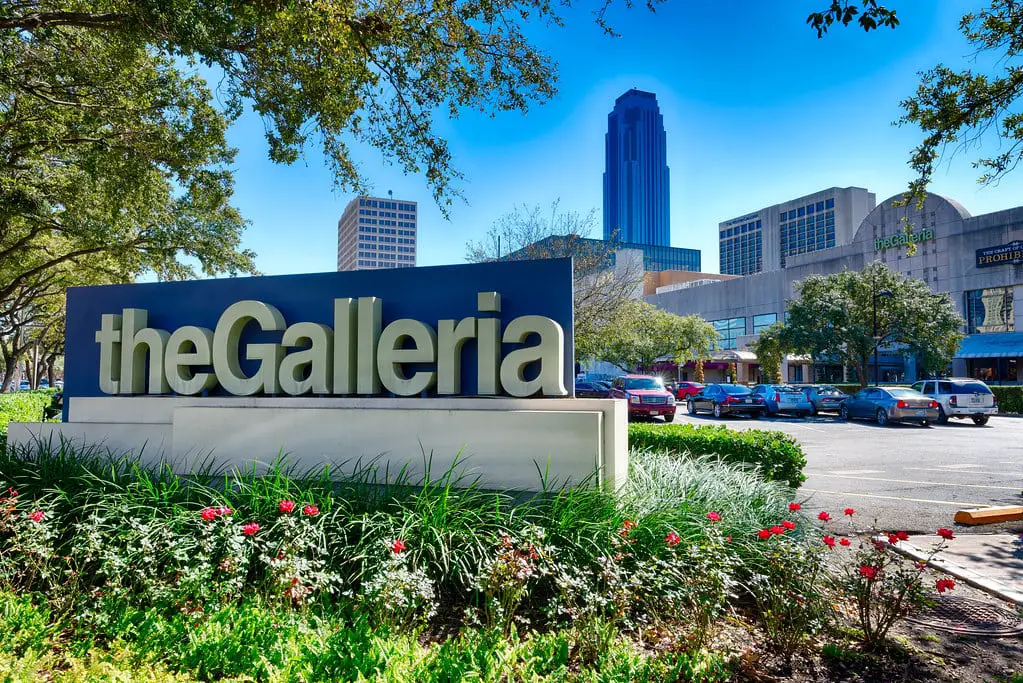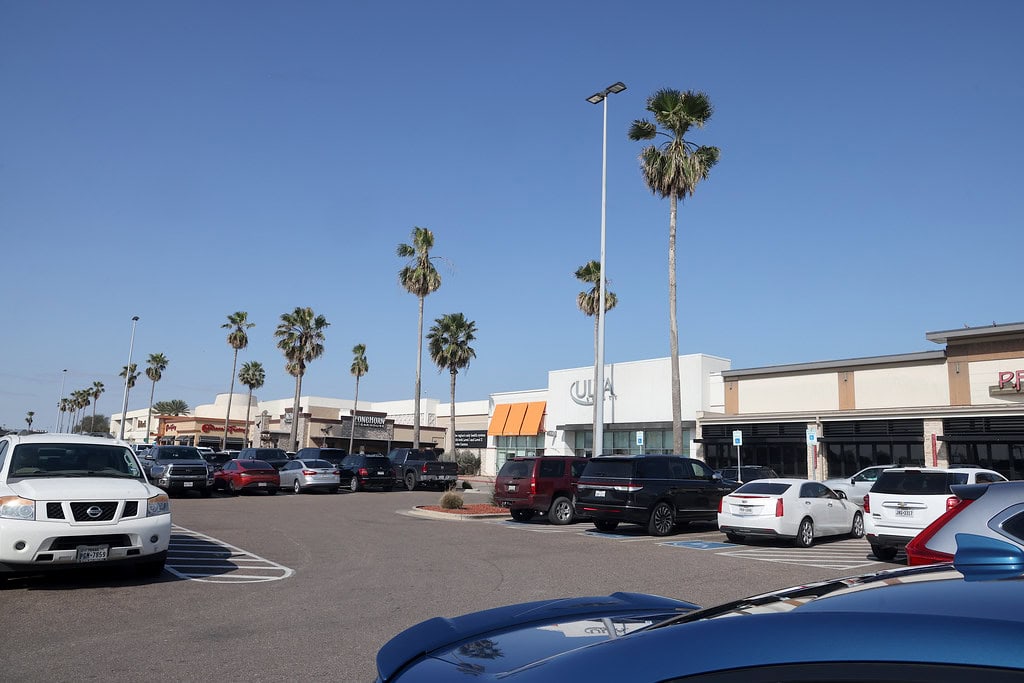Baybrook Mall and a modest 1970s dream
Before it became a huge shopping center that stretched along Interstate 45 like a grounded spaceship, Baybrook Mall started as a careful idea, modest in size and rich in ambition.
In the early 1970s, developers planned a shopping center for the growing Clear Lake area, a part of southeast Houston and northern Galveston County that was more working class than booming.
Shoppers were driving to Almeda Mall for big shopping trips, and Homart, the company that built malls for Sears, decided it was time to bring them closer.
When Baybrook was officially announced in April 1977, the plan was purposely simple.
The mall would open with about 625,000 square feet of space to rent, smaller and more energy-saving than the big, fancy malls being built in other parts of Texas.
If the area grew, they could make it bigger later. If it did not, they would not be stuck with a huge, expensive building that no one used.
Homart chose well-known stores for this new mall: Montgomery Ward, Sears, and Joske's.
Work on the land started in July 1977 on a spot that was inside Houston city limits but had a Friendswood mailing address, a confusing detail that the mall still deals with today.
The goal was to open in late summer 1978. People living in the suburbs of Houston, and the NASA workers nearby, were about to get their own main shopping spot.
Oil booms, Blue Laws, and A plus sales
The ribbon cutting on July 26, 1978, gave southeast Houston its new indoor living room.
Baybrook Mall opened with 77 merchants: Joske's, Montgomery Ward, Sears, Luby's cafeteria, Radio Shack, Zales, and a supporting cast of chains that smelled like new carpet and optimism.
Almeda Mall, up the freeway, was suddenly the older sibling with less interesting clothes.
Success came quickly. In the early 1980s, oil prices were high, the Clear Lake area was growing, and Houston's older malls were already packed.
Baybrook became the clear choice for stores that could not find space anywhere else. Homart and the companies that followed did not wait for the building to get old.
In March 1983, they announced a huge 365,000 square foot expansion with two new main stores, including Mervyn's.
Macy's, wanting to open in Texas, joined in February 1984 as the fifth main store.
The expansion opened in March 1984 with Mervyn's and twenty more stores, led by former quarterback and host Gifford Nielsen.
Macy's opened in July 1985 with a three-story, 220,000 square foot store and at least thirty departments, showing off the lively energy of mid-80s shopping.
Even when the Texas economy had trouble around 1984 and 1985, Baybrook's sales kept going up.
It also pushed against Texas Blue Laws. Before these rules ended in September 1985, Baybrook was one of the stores opening on Sundays, seeing how much of the weekend the law would really control.
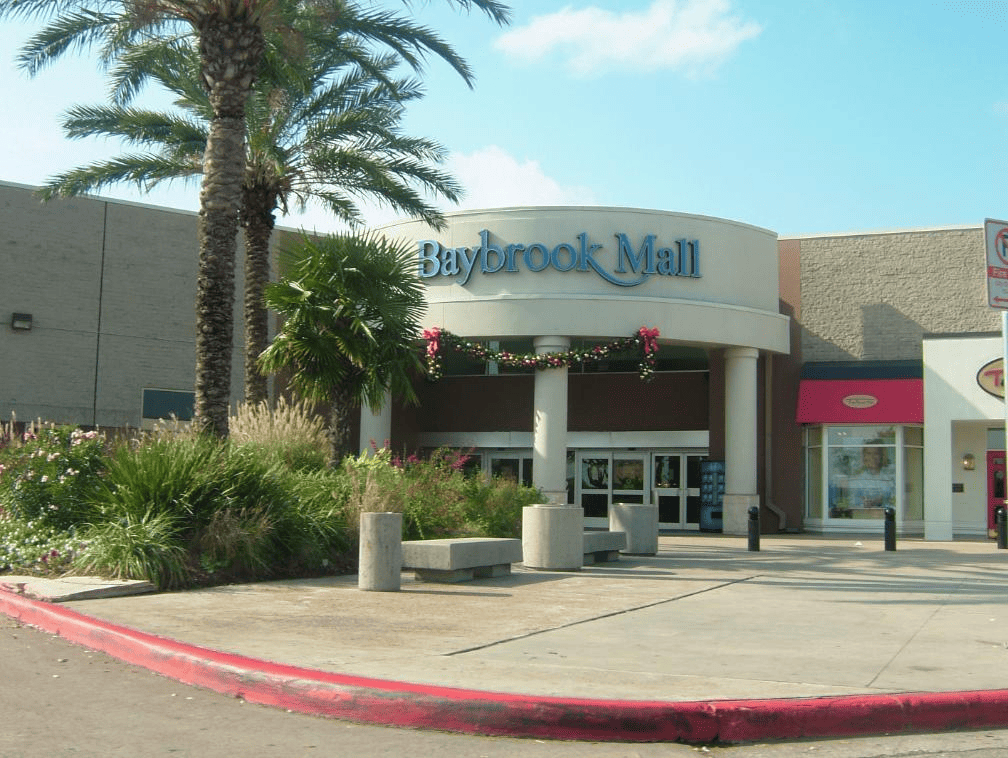
Crowded lots, crowded shops, constant reshuffling
By the late 1980s, the mall was no longer the new kid on the block. RREEF now owned it and took Baybrook Mall seriously.
A renovation costing about 2 million dollars in the late 1980s helped keep the mall from becoming dull and boring.
By July 1988, the mall had more than 160 stores, about 1.2 million square feet of shopping space, parking for 5,700 cars, and served more than 500,000 people in the area.
The numbers were the kind that made banks happy. Over 90 percent of the mall's space was rented out.
Shoppers came more than three times a month and spent an average of 84 dollars each visit, which made sales go up about 10 percent each year.
Store owners started calling Baybrook an "A-plus mall." Business owners in Galveston were so worried that during the 1988 holiday season, the city and local shops started a campaign asking people to shop at Galvez Mall instead of driving 27 miles to Baybrook.
Not everything in the 1980s went well. The parking lot, like any big paved area, had its share of problems, including a kidnapping and the deadly shooting of a man in his truck in 1985.
Still, the mall's business barely slowed down. By February 1989, Baybrook Mall's 96 percent occupancy rate made it the second-most-full mall in the Houston area. It had gone from being a new idea to a well-known place.
New marble, new bosses, new map
The 1990s started with more good news for the mall. In 1990, sales were up 22 percent from the year before. Management decided to stay ahead of problems. In 1994, Baybrook Mall started a big renovation.
The 8-million-dollar project gave each entrance a new round lobby, changed the hallways, added long windows in the ceiling, and put in more places to sit.
Old floor tiles were replaced with marble. A new fountain in the center and a brighter main entrance tried to bring the old mall into a new, more hopeful era.
Construction took place at night so shoppers could keep coming during the day.
The ribbon cutting in November 1994 marked the opening of Baybrook's new version.
Ownership changed again in 1999, when General Growth Properties bought the mall. This would later make Baybrook Mall part of the Brookfield group. Inside, the main stores also began to slowly change.
Dillard's had already come in 1987, when it bought the Joske's chain and changed the Baybrook Joske's store to Dillard's.
In 1997, Macy's sold its three Houston-area stores to Dillard's, leaving this mall with an unusual setup: two Dillard's stores, one in the old Joske's for men's and home goods, the other in the old Macy's for women and children.
The 1990s ended with Baybrook Mall making money, covered in new marble, and more complicated than just a simple four-store layout.

Broken safety, broken chains, rebuilt corners
The 2000s began with a violent shock that did not fit the family-shopping script.
In August 2000, a woman walking into Dillard's was confronted by a robber trying to snatch her purse. After a struggle, he shot her in the neck.
She collapsed in the doorway and later died, and the suspect fled. For a mall marketed as a safe suburban refuge, the story cut straight through the soft music.
The anchors were shaking too. After 128 years in business, Montgomery Ward filed for bankruptcy in December 2000.
He closed all its stores, including Baybrook's, which went dark in early 2001. Foley's moved into the empty Ward's box in November that year, giving the space a second act.
Behind the scenes, the Dillard's dyad was being unwound.
In 2004, Dillard's expanded and renovated the former Macy's building from about 218,000 to 330,000 square feet and consolidated its operations there, leaving the older Joske's building vacant.
Foley's promptly took that over, gutting and expanding it by another 100,000 square feet and opening the revamped store in November 2004.
When Foley's parent, May Company, was absorbed by Federated, the Foley's name came down.
Macy's came back in 2006, this time in the south-side former Joske's footprint, facing a north-side Dillard's. Meanwhile, JCPenney made its move.
After Foley's left the former Ward's space, Penney demolished the old two-story Ward's shell and built a new 93,000 square foot one-story store, opening in November 2005.
The original Luby's, after about thirty years of meatloaf and lime Jell-O inside the mall, relocated across the Gulf Freeway in 2008.
The Lawn, lifestyle dreams, and neon nights
The old Mervyn's, a child of the 1984 expansion with its 80,000 square feet, closed at the end of 2005 when the chain pulled out of Houston.
The box sat empty for four years, an architectural pause in a mall that had rarely stopped moving.
In 2010, Forever 21 arrived, jumping from a 7,000 square foot inline space to that hulking anchor, a fast fashion statement visible from the parking lot.
By 2014, Baybrook Mall was nearly fully leased and was widely described as the premier shopping destination for southeast Houston. That was not enough for its owners.
Under pressure from Tanger Outlets in Texas City and Pearland Town Center, they announced a massive expansion: a new open-air lifestyle center and an adjacent power center that together would add roughly half a million square feet, more than thirty stores, and ten restaurants.
The first phase opened in November 2015. The lifestyle center wrapped around a long, carefully landscaped green known simply as The Lawn, flanked by restaurants and entertainment.
Dave & Buster's, Star Cinema Grill, Bar Louie, Z Gallerie, Kendra Scott, Yard House, Perry's Steakhouse, Zara, Arhaus, and Maggiano's joined the lineup.
Star Cinema's 42,000 square foot flagship marked the return of a theater after General Cinema's 1998 exit.
Lighting designers layered LEDs along concourses, trellises, and water features to make the open-air expansion glow at night, a suburban stage set for date nights.
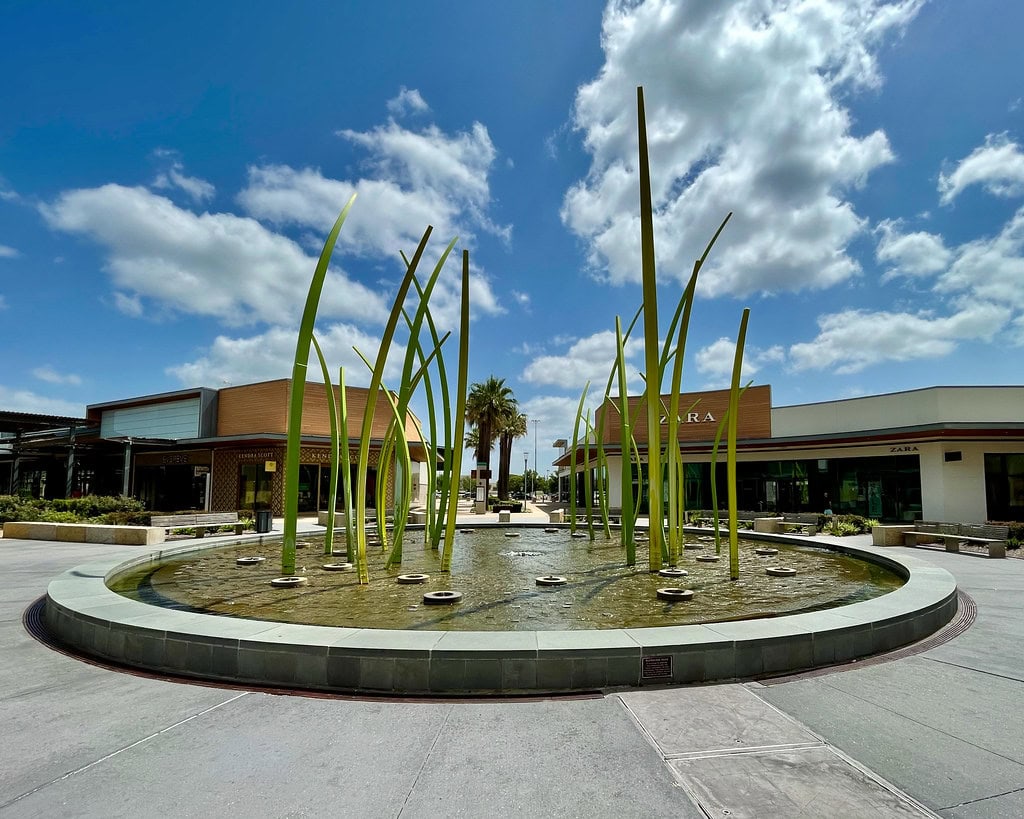
Power center sprawl and a Sears afterlife
In 2016, Baybrook Mall started to grow with new buildings and parking lots.
The next step added a shopping area about the size of five football fields, connected to the new section, with a row of big stores that finished the mall's new look.
Dick's Sporting Goods became the main sports store, with The Container Store and Total Wine & More next to it like steady, popular neighbors.
With this addition, the whole place grew to about 1.8 million square feet, making Baybrook the second-largest mall in the Houston area and one of the biggest shopping centers in Texas, a big change from its small start in the 1970s.
Sears, one of the first big stores from 1978 and the company that once started Homart, gave its building to Seritage in 2015, then announced it would close in 2017.
By September, the store was empty, a reminder of the days when people shopped by catalog.
The empty building stayed that way until 2024, when it was remodeled for Living Spaces, turning the old department store into a large furniture store.
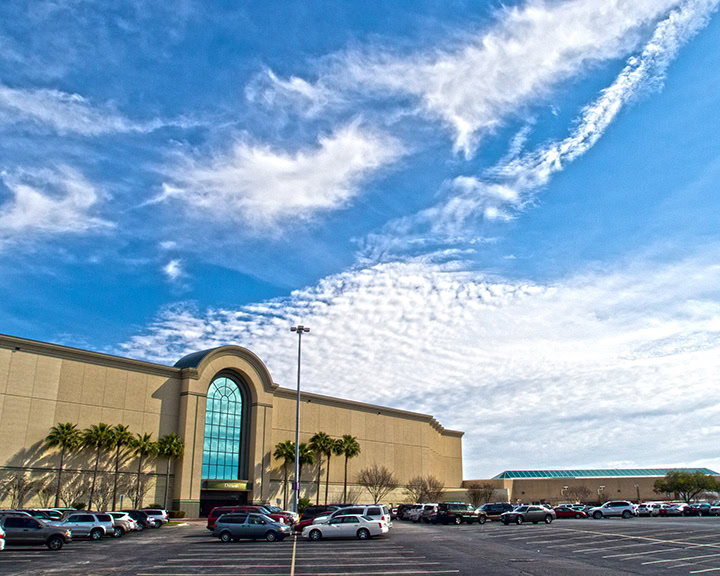
Midline, IKEA, and Baybrook Mall's next orbit
Today, Baybrook Mall still sits at 500 Baybrook Mall in Friendswood, TX, hugging I-45 at Bay Area Boulevard.
It sells itself as the preferred stop for southeast Houston, with more than 220 stores and restaurants orbiting anchors like Dillard's, JCPenney, Macy's, Living Spaces, Dick's House of Sport, Dave & Buster's, Star Cinema Grill, and Zara.
The old mall walkers now share space with event-lawn movie nights, kids' activities, and the occasional Instagram backdrop.
Crocs, Mango, and Melissa arrived in recent years. Wellby Financial bought land nearby for a new headquarters.
Pop Mart's 2025 opening drew dawn lines and sprinting fans. Forever 21's big box vanished in a wave of liquidation.
Nearby, Midline's 2,800 homes and a coming IKEA at the Center at Baybrook suggest that Baybrook Mall's gravity is only getting stronger, for better or worse.

